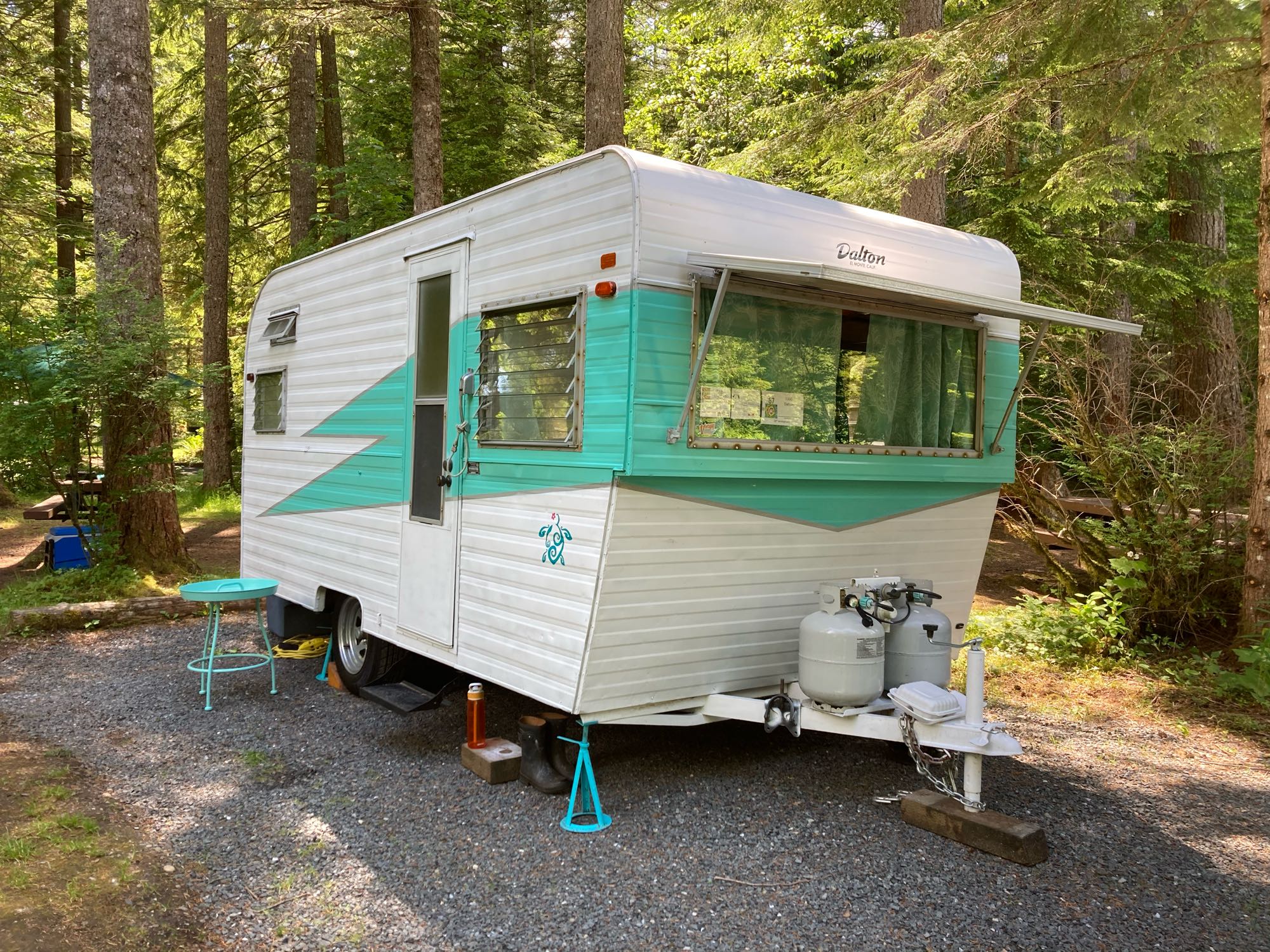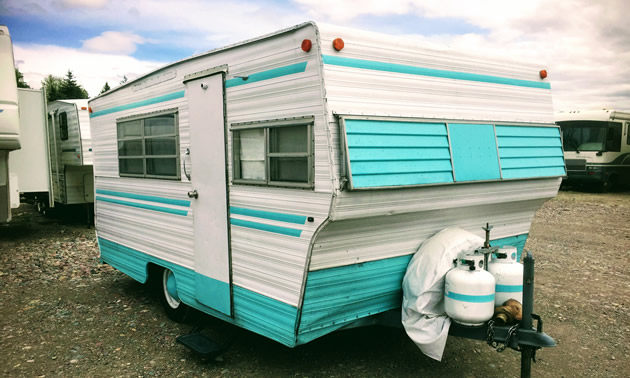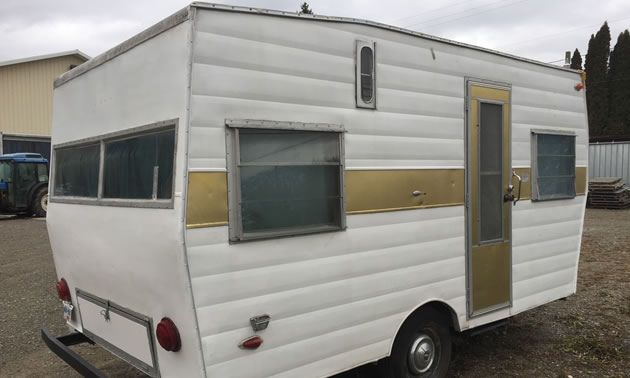Ah, the 1960s—a decade characterized by vibrant music, cultural revolutions, and a significant shift in how Americans vacationed. The post-war era saw an uptick in leisure travel, with families flocking to national parks and roadside attractions in their trusty travel trailers. In this article, we’ll delve into the fascinating world of 1960s travel trailers, exploring their history, iconic models, travel tips, and unforgettable experiences on the open road.
Table of Contents
- History of 1960s Travel Trailers
- Popular 1960s Travel Trailer Models
- Traveling in a 1960s Travel Trailer
- Travel Tips for Exploring in a Vintage Trailer
- Pros and Cons of 1960s Travel Trailers
- Comparison of Popular 1960s Trailers
- FAQs about 1960s Travel Trailers
History of 1960s Travel Trailers
The 1960s marked a significant evolution in trailer design, reflecting the era’s architectural trends and societal values. The booming middle class embraced the concept of family vacations, forging a bond over campfires and scenic views.
Travel trailers became not just a means of transport but a symbol of freedom and adventure. These compact homes on wheels allowed families to explore the vast American landscape, from the stunning beaches of California to the majestic mountains of Colorado.
The Rise of Travel Trailers
Travel trailers grew in popularity after World War II, but the 1960s saw a surge in production and variety. Manufacturers like Airstream, Shasta, and Winnebago led the pack, each bringing innovation to design and functionality. In this era, trailers transformed from basic models into glamorous vacation homes, often equipped with amenities like kitchens, bathrooms, and comfortable sleeping areas.
Key Features of 1960s Trailers
Trailers from this era showcased a range of styles and features:
- Aluminum Exteriors: Airstream’s iconic shiny aluminum finish became synonymous with travel and adventure.
- Retro Interiors: Bold colors and patterns adorned the interiors, often featuring orange, green, and yellow hues.
- Compact Design: The clever use of space maximized storage and functionality, ensuring a comfortable experience on the road.

Popular 1960s Travel Trailer Models
Several travel trailers from the 1960s have stood the test of time, becoming classics in the vintage trailer community. Let’s explore a few popular models that evoke nostalgia and adventure.
Airstream Flying Cloud
The Airstream Flying Cloud became a staple of 1960s road trips, known for its aerodynamic silver body and a luxurious interior. With a layout that comfortably accommodated families, it was perfect for rustic getaways.

Specifications:
- Length: 22-30 ft
- Weight: 4,000-5,500 lbs
- Capacity: Up to 6 people
Shasta Airflyte
This model captured the essence of the 1960s with its daring colors and retro design. With a compact size, it was ideal for those looking to embark on spontaneous adventures.

Specifications:
- Length: 16-19 ft
- Weight: 1,200-2,800 lbs
- Capacity: Up to 4 people
Winnebago Travel Trailer
Winnebago’s reputation for quality and innovative design made its trailers immensely popular. The 1960s models featured spacious interiors and modern amenities.

Specifications:
- Length: 18-25 ft
- Weight: 3,000-4,500 lbs
- Capacity: Up to 6 people
Traveling in a 1960s Travel Trailer
There’s something magical about hitting the road in a vintage travel trailer. Let me share my personal experience of a summer trip I took in a 1960s Airstream.
Planning the Journey
Before setting off, I mapped out a route through the national parks of the West. I was excited to retrace the steps taken by countless families before me, and I wanted to immerse myself in the nostalgia.

Setting Up Camp
Upon arriving at the campsite, I found joy in the simplicity of setting up. Unhitching the trailer, setting up the awning, and arranging the outdoor seating made me feel connected to the past. The trailer, with its gleaming exterior, seemed to attract admirers from nearby camps.
The Road Trip Experience
The drive was exhilarating! The Airstream handled wonderfully, and with the windows down, I felt the breeze as I cruised along winding roads. Each stop brought the thrill of exploration—whether it was a chance encounter with a scenic overlook or a roadside diner with the best milkshakes.

Campsite Adventures
Evening campfires became a ritual, where I shared stories with fellow travelers. The retro vibe of the trailer perfectly matched the starry nights, creating an atmosphere that felt suspended in time. My experience in the 1960s Airstream was not merely a vacation; it was a journey into the past, filled with laughter, connection, and a sense of adventure.
Travel Tips for Exploring in a Vintage Trailer
Traveling in a 1960s trailer comes with its unique set of challenges and rewards. Here are some essential tips to enhance your journey:

1. Familiarize Yourself with the Trailer
Before your trip, spend time understanding the systems (water, electrical, etc.) in your trailer. Many retro trailers don’t have modern amenities, so knowing how to operate them is crucial.
2. Plan Your Route Carefully
Choose routes that are RV-friendly, avoiding narrow roads and steep inclines where possible. Use GPS or planning apps designed for RVs to ensure smoother navigation.
3. Pack Smart
Space is limited in vintage trailers, so pack efficiently. Use collapsible containers, and consider multifunctional items to maximize space.
4. Maintain the Trailer
Regular maintenance is key. Check the tires, brakes, and hitch system before each trip. Inspect for any leaks or wear and tear.
5. Embrace the Experience
Vintage trailers come with their quirks. Embrace them! Enjoy the slower pace of travel and the joy of unplugging from modern distractions.
Pros and Cons of 1960s Travel Trailers
Pros
- Unique Charm: The retro aesthetic offers a one-of-a-kind experience that modern RVs simply cannot replicate.
- Community: Vintage trailer enthusiasts form a passionate community, easily connecting through social media and events.
- Adventure Spirit: There’s a sense of adventure that comes with traveling in a classic trailer, prompting you to explore off-the-beaten-path destinations.
Cons
- Maintenance: Older trailers may require more upkeep and repairs, as they lack the durability of modern builds.
- Limited Amenities: Vintage trailers may not have modern conveniences, which could be a drawback for some travelers.
- Weight & Towing: Some models can be heavy and may require a more robust vehicle for towing.
Comparison of Popular 1960s Trailers
| Model | Length (ft) | Weight (lbs) | Capacity (people) | Price Range |
|---|---|---|---|---|
| Airstream Flying Cloud | 22-30 | 4,000-5,500 | Up to 6 | $30,000 – $80,000 |
| Shasta Airflyte | 16-19 | 1,200-2,800 | Up to 4 | $15,000 – $35,000 |
| Winnebago Travel Trailer | 18-25 | 3,000-4,500 | Up to 6 | $20,000 – $50,000 |
FAQs about 1960s Travel Trailers
What Should I Look For When Buying a 1960s Travel Trailer?
When purchasing a vintage trailer, check for structural integrity, the condition of appliances, and the state of the plumbing and electrical systems. It’s also beneficial to have a trusted mechanic inspect it before buying.
Are 1960s Travel Trailers Suitable for Full-Time Living?
While some people do live full-time in vintage trailers, it’s essential to consider their size, lack of modern amenities, and potential maintenance needs. Most vintage trailers are ideal for short trips rather than permanent living.
How Much Does a Classic 1960s Travel Trailer Cost?
The price can vary widely based on the model, condition, and restoration. Expect to pay anywhere from $10,000 to $80,000, depending on the specifics.
Where Can I Find a 1960s Travel Trailer?
Online marketplaces such as eBay, Craigslist, and specialized vintage trailer dealerships are great places to start. Additionally, attending vintage trailer rallies can provide networking opportunities with sellers.
Can I Rent a 1960s Travel Trailer?
Yes! Several companies offer rental options for vintage trailers, allowing you to experience the charm without the commitment of ownership.
How Do I Care for a 1960s Travel Trailer?
Regular cleaning, inspecting for water damage, and ensuring all systems are functioning correctly are crucial. Keeping it stored in a covered area can also help prevent wear and tear.